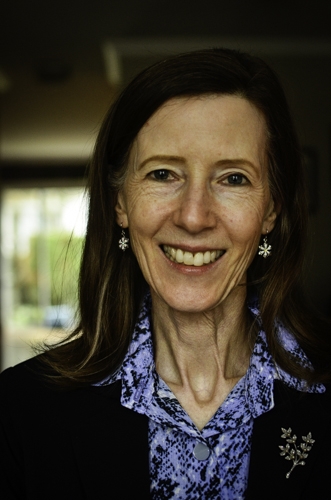about

Pauline Carey has been providing counselling and training services for over 40 years and on two continents.
In her counselling practice, Pauline uses a proven brief therapeutic modality called Applied Metapsychology, to assist clients in achieving their counselling goals in the shortest possible time. Applied Metapsychology techniques include Traumatic Incident Reduction (TIR) and Life Stress Reduction (LSR). TIR is a particularly effective and respectful trauma counselling modality, and LSR handles a variety of life stresses, providing relief and solutions in the shortest possible time.

In the last 20 years she has specialized in trauma resolution and the reduction of unwanted negative emotions such as anger and anxiety.
In 2007, Pauline was certified by Applied Metapsychology International as a Senior Trainer in TIR and LSR. This qualified her to teach Traumatic Incident Reduction (TIR), Life Stress Reduction (LSR), and TIR Expanded Applications (EA) to counsellors and other social service fellow helping professionals. Since 2007 Pauline has trained hundreds of practitioners throughout B.C. as well as in the Canadian Arctic.
In addition to counselling and training, Pauline also provides crisis management services to organizations. Traumatic events such as death of an employee, robbery, assault, and job loss, frequently affect staff, even those not directly involved. On-site trauma debriefings and counselling services are available to assist employees and employer as they process the trauma and return to their prior level of functioning.
Pauline served as Regional Vice President of the BC Association of Clinical Counsellors from 2004 – 2006. From 1994-1999, she worked for Deltassist (formerly Delta Family Services) as Clinical Supervisor of Counselling Programs. Here she supervised 16 professional staff in 6 counselling programs: Alcohol and Drug, Family Violence, Suicide Prevention, Sexual Abuse Survivors and two family counselling programs.
Prior to moving to Canada in 1994, Pauline was a Registered Clinical Psychologist in her native South Africa. In addition to her private practice there, she worked as a human resources management consultant, a college instructor in psychology, a career counsellor, and as an industrial psychologist for one of the biggest employers in the country.

Experienced counsellor and trainer Pauline Carey provides counselling, training and workplace crisis management. Pauline can help you resolve trauma, anger, and stress.
M.A. (Clinical Psychology) 1986
Registered Clinical Counsellor #1315
Trainer in Traumatic Incident Reduction and Life Stress Reduction since 2007
Member – Harrison Agassiz Chamber of Commerce

Frequently Asked Questions.
Applied Metapsychology is a comprehensive system for addressing issues for which people usually seek counselling, such as trauma, anger, anxiety, stress, or relationship difficulties. It was developed by psychiatrist Dr Frank A Gerbode in the 1980s and has been used successfully throughout the world by counselling professionals and lay practitioners. Although commonly practised by helping professionals, Applied Metapsychology is in fact a form of education. The practitioner of Applied Metapsychology assists the other person to integrate the information he or she already has, rather than providing additional information or direction.
TIR is a brief, one-on-one, non-hypnotic, person-centered, simple and highly structured method for permanently eliminating the negative effects of past traumas. It involves repeated viewing of a traumatic memory under conditions designed to enhance safety and minimize distractions. The client does all the work; the therapist or counselor offers no interpretations or negative or positive evaluations, but only gives appropriate instructions to the client to have him view a traumatic incident thoroughly from beginning to end. A TIR session is not ended until the viewer achieves a sense of completion and feels good. This may take anywhere from a few minutes to 3-4 hours. Average session time for a new viewer is about 90 minutes. On average, PTSD symptoms can be eliminated within 15 session hours.
Acknowledgements to the Traumatic Incident Reduction Association for the above description. Please see their website for further information: www.tir.org
Life Stress Reduction is a comprehensive and thorough way of addressing the type of concerns for which people usually seek counselling, such as anxiety, stress, self esteem, career or relationship difficulties. Life Stress Reduction typically includes an assessment of the areas of life which are causing distress, some information about the LSR process, and then “clearing away the mental debris that is creating unhappiness and inhibiting progress in life”*. The LSR techniques are almost all structured questionnaires which allow the individual to “view” his or her life difficulties in a safe and supportive environment. After completion of a Life Stress Reduction program, the individual can expect to have renewed hope, general good feelings, revitalization in life, and a readiness to address issues that are universally a part of the human condition.*
* Acknowledgements to Applied Metapsychology International and the Traumatic Incident Reduction Association www.tir.org
Broadly speaking, counsellors and psychologists do very similar work. A psychiatrist is a medical doctor who then specialised in psychiatry. The psychiatrist is an expert on medication to treat emotional and psychological conditions. In Canada there is currently only partial regulation of counsellors, in Ontario, Quebec and Nova Scotia. This means that in other provinces and territories, anyone who has taken any counselling courses can call themselves a trained counsellor.
The B.C. Association of Clinical Counsellors and the Canadian Counselling & Psychotherapy Association are working collaboratively with counselling associations within Canada to persuade government to regulate the counselling profession throughout the country. This would increase public safety by ensuring minimum levels of education, ethics and practice. In the absence of statutory regulation of counselling, your best choice of counsellor is one who is a member of the BC Association of Clinical Counsellors (www.bc-counsellors.org), the Canadian Counselling Association (www.ccpa-accp.ca), or the BC Association of Marriage and Family Therapists (www.bcamft.bc.ca). Membership in these organisations requires a minimum of a Master’s Degree in counselling, as well as clinical experience, and there are strict guidelines for professional behaviour.
Psychologists in B.C. are regulated by government, and a minimum of a PhD degree and post-doctoral supervision is required before a practitioner may register as a psychologist. Psychologists’ fees are generally considerably higher than those of counsellors.
No referral is needed.
This depends on what you want to achieve, and a number of other factors. Applied Metapsychology typically achieves the desired outcome in a much shorter time than conventional counselling. On average, most clients reach their goals in two to three months.
Possibly. Check the exact provisions of your program. Some extended health programs specify a fixed amount per year for counselling, such as $500; some specify that coverage is provided only for psychologists; others specify that registered counsellors are covered.
Possibly. Check the exact provisions of your program. Some EAPs employ their own counsellors and will refer you to one of them. Other EAPs allow you to select your own counsellor and submit receipts to them for reimbursement.
Anger Management is offered as an individual counselling program and in groups. It involves learning skills to manage and control one’s anger. Anger Resolution is the common result of a Life Stress Reduction program in which excessive anger is identified as a concern. Anger Resolution takes about the same amount of time as Anger Management. An advantage of Anger Management over Anger Resolution is cost, if a group program is followed. However group programs may not be able to fully address individual concerns. A disadvantage of Anger Management compared to Anger Resolution is that it requires ongoing hard work to manage excessive anger every time it occurs. The greatest advantage of Anger Resolution is that it gets rid of the excessive anger – so you don’t experience it anymore, and can enjoy life more.
